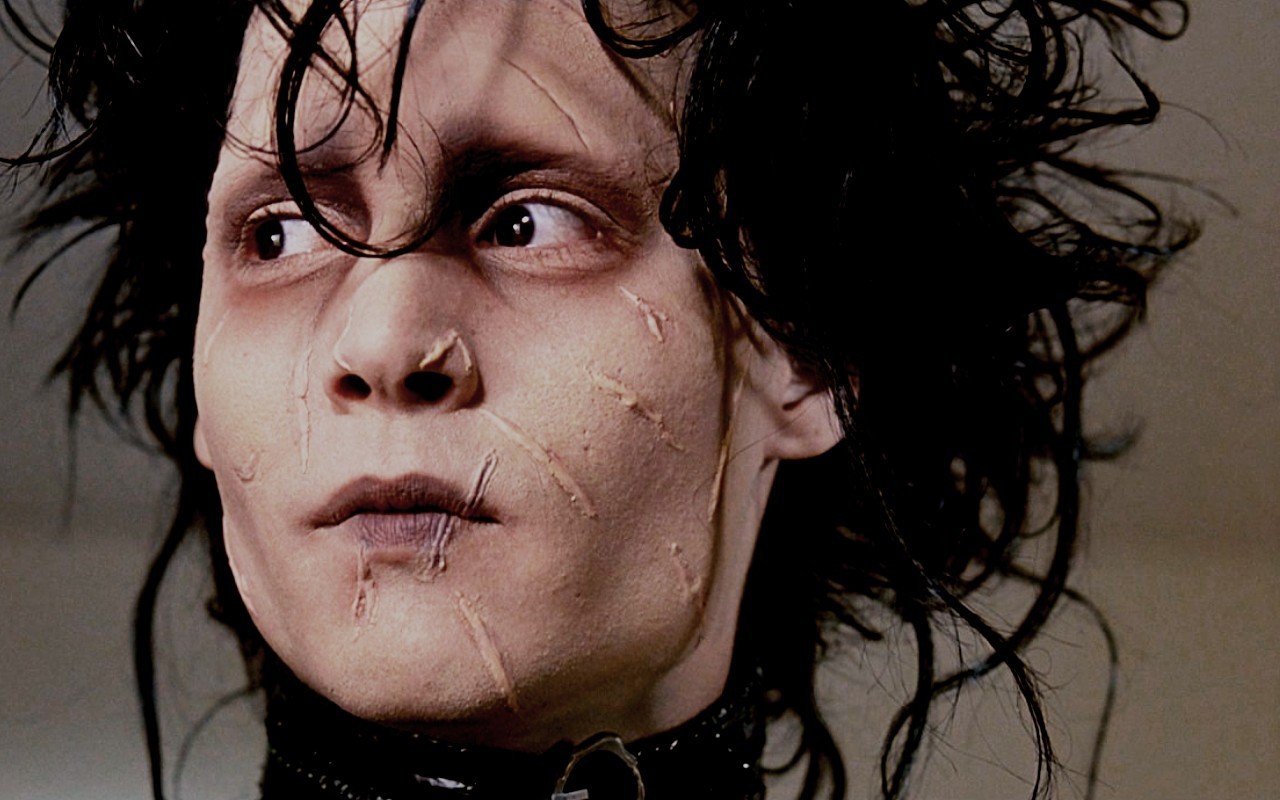In Edward Scissorhands takes fairy tale elements and turns them
inside out. This one reminds me mostly of the Beauty and the Beast.
Obviously, Kim is alluded to Belle, and Edward is the beast, who lives in
a castle. The story is undermined, though, because it is the beast
who comes down from the castle. Belle's selfish sisters are very similar
to Kim's friends, who keep trying to get things out of her and Edward, like
when they rob the house to get money for a van. In the Beauty and the Beast,
there really isn't any violence at all. Edward's violence arises out of
misunderstanding, and seems to be there mostly for plot development rather than
the establishment of a moral.
I have a sort of
negative view about how people work. I don't think we have very much true
morality at all, because if society had a full sense of morality, we wouldn't
need laws in the first place. In America, it is generally believed that morality
comes from the self. I believe that it comes from outside of us. If truth
is really inside us all, then why do we keep fighting over what's right? Right
is right and wrong is wrong.
That said, the
people of the suburbia that Edward lives in try to look like they have it
together, but they don't. The blog prompt describes the town as looking “squeaky
clean” but to me, it looks suspicious.
Nothing that well-kept has a clear conscience. I think that their
biggest downfall is the gossip that the women take part in. Small lies in
the movie quickly turn into huge stories, like when Edward refused to have sex
with Joyce only to have the grapevine turn him into a rapist overnight. The people of the town accept what they hear
about other people as fact before they can find out if it is valid, and then
judge the person accordingly. The gossip creates a sort of loop, because in
order to look good in such a messed up society, you have to have someone that
looks worse than you. The suburb is lost
in itself, playing the blame-game in order to stay on top of everyone else.

